How much of the world's water is freshwater?
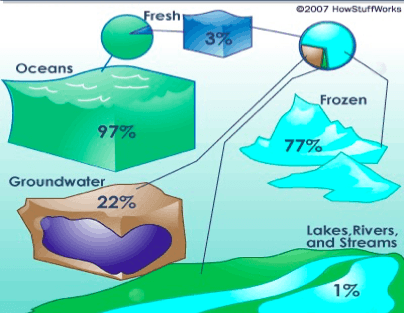
3%
What are the two types of water scarcity?
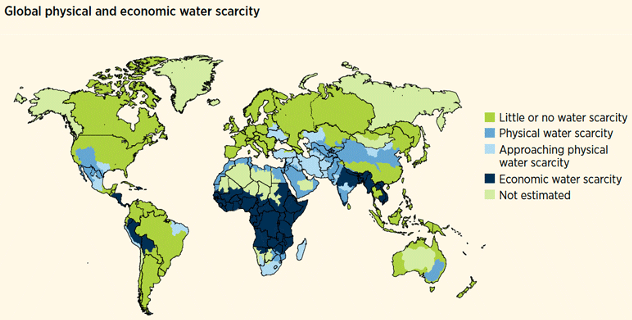
Physical and economic water scarcity.
How many years has the Neskantaga First Nations community been under a long-term boil water advisory for?
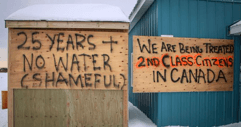
over 25 years
since February 1995
What are the two types of water pollution?
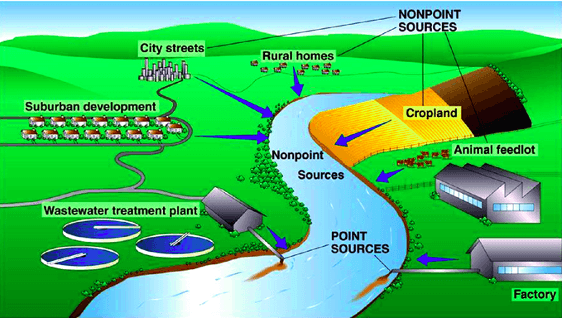
Point Source and Non-point Source Pollution
Which sector has the largest water consumption worldwide?
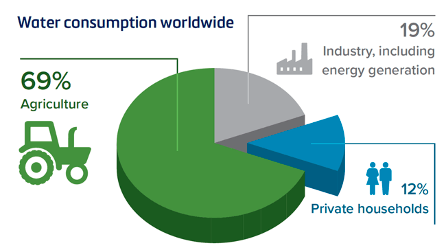
Agriculture, food production
What type of water scarcity does a large part of Africa face?
A)Physical
B)Economic
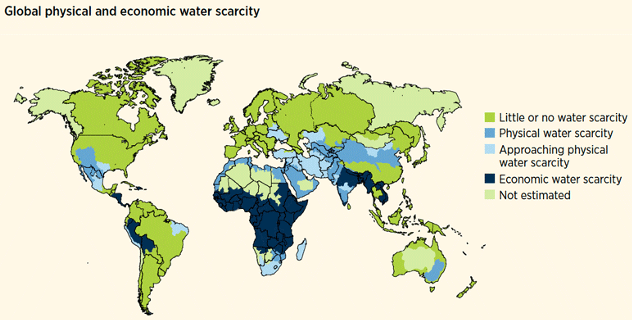
B)Economic water scarcity
What are boil water advisories?
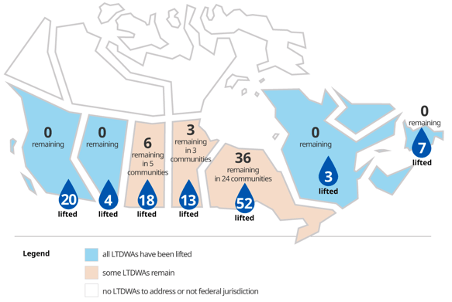
Boil water advisories are official announcements that inform consumers that they need to boil their water in order to protect their health against the potential presence of disease-causing bacteria, viruses or parasites.
What is the first step in wastewater treatment?
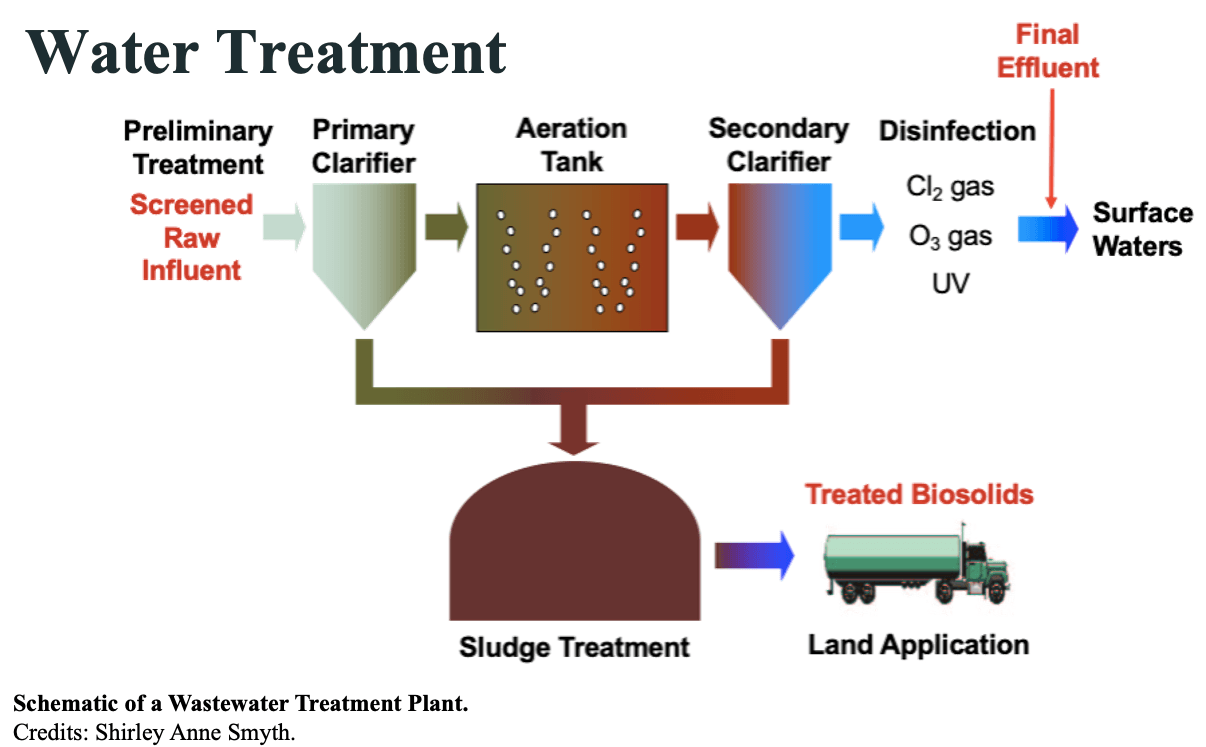
Preliminary Treatment
Screening the wastewater for large debris
How much water does the agricultural sector consume worldwide?
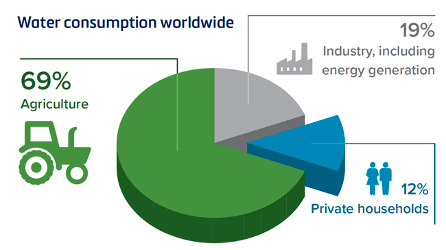
~70%
What is water scarcity?
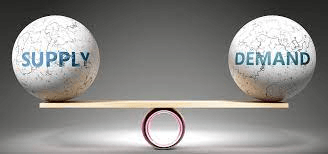
Water scarcity or water stress is when the available supply of water cannot meet the demand for water (ie. 10 people want to drink water but there is only enough for 3 people).
How many boil water advisories does Ontario have?
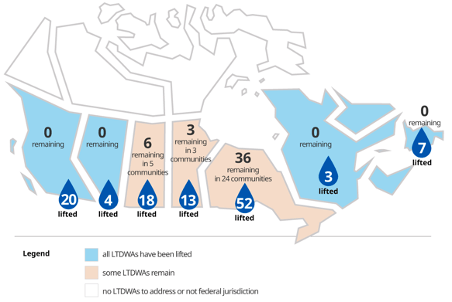
36
What is non-point source pollution?
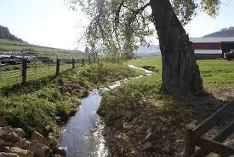
Non-point source pollution is when you cannot clearly identify the location at which the pollution is entering the water network.
How is the world's freshwater distributed?
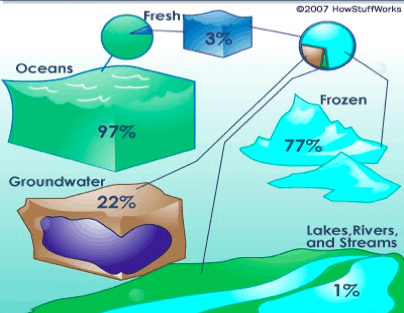
~77% is frozen in ice glaciers
~22% is groundwater
~1% is surface water (streams, lakes, rivers)
What is physical water scarcity?
Physical water scarcity is the result of a region’s demand outpacing the limited water resources found there. For example, the lakes, rivers or streams are drying up or the groundwater is being used faster than it is replenished.
What is environmental racism?
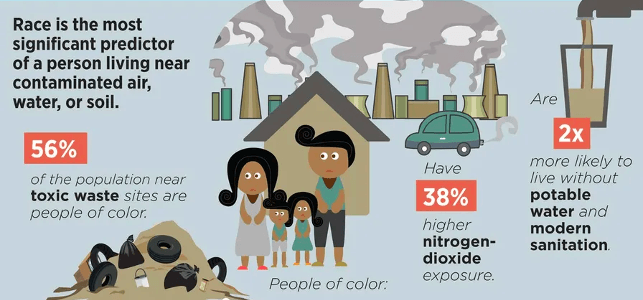
“Environmental racism” describes the fact that people of color and low-income people are most likely living near sources of contamination like toxic waste facilities and away from clean water, air, and soil.
What is an example of point source pollution?
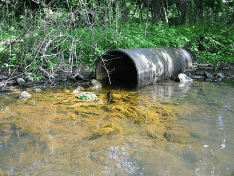
factory sewage pipe
Do you think water is equally distributed across the globe?

No, there is unequal distribution of clean water around the globe. One area may have an abundance and access to clean water, like Canada, while other parts of the world may lack clean water or do not have access to it, ex. Kenya.
Provide an example of economic water scarcity.

For example, if there is groundwater in a region but no well to access it, then there is a lack of infrastructure. Or if there is a pump but it is broken and no one is repairing it, then there is poor management of the infrastructure.
Why does a lack of water access contribute to gender inequality?
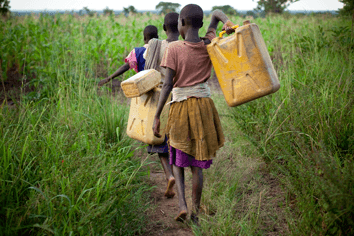
Young girls and women are typically responsible for fetching water for their families.
In Africa alone, women spend 40 billion hours a year walking for water.
With access to clean water these women would have more time to grow food, earn an income, and go to school -- all of which fight poverty and gender inequality.
What are the steps that wastewater goes through in a wastewater treatment plant?
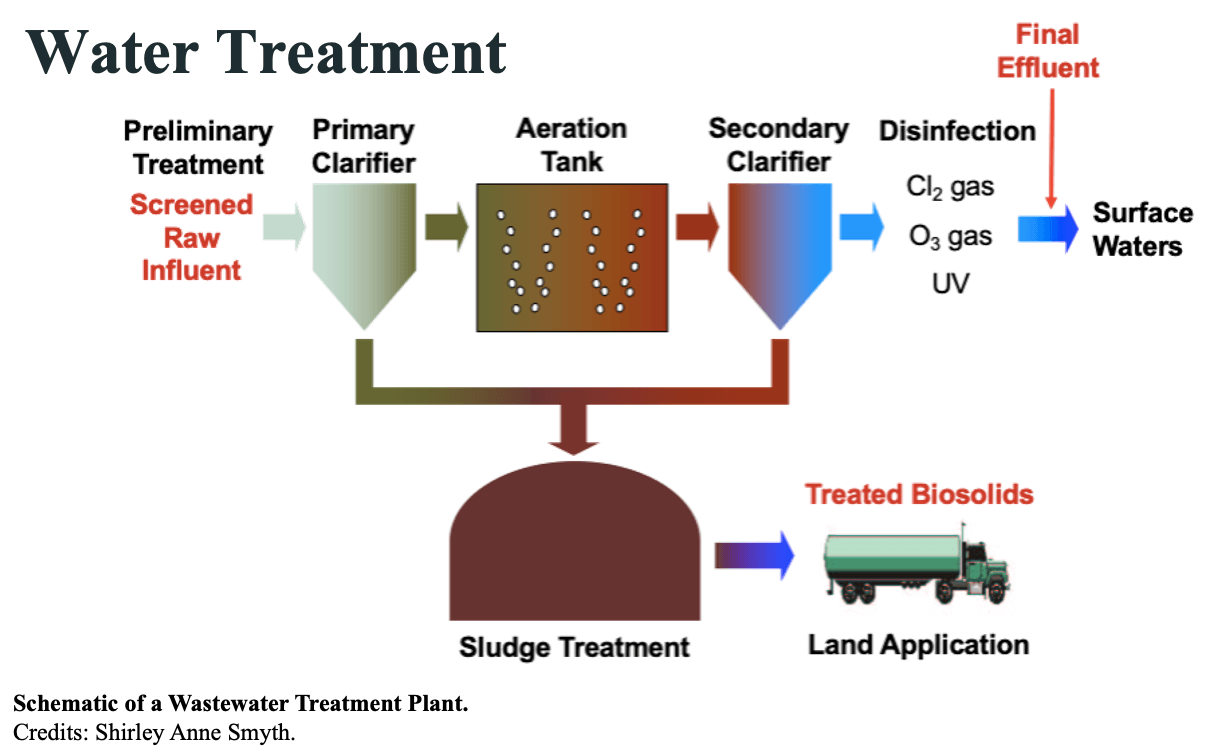
preliminary treatment
primary clarifier or settling tank
secondary treatment in an aeration tank
secondary clarifier
sludge treatment
disinfection